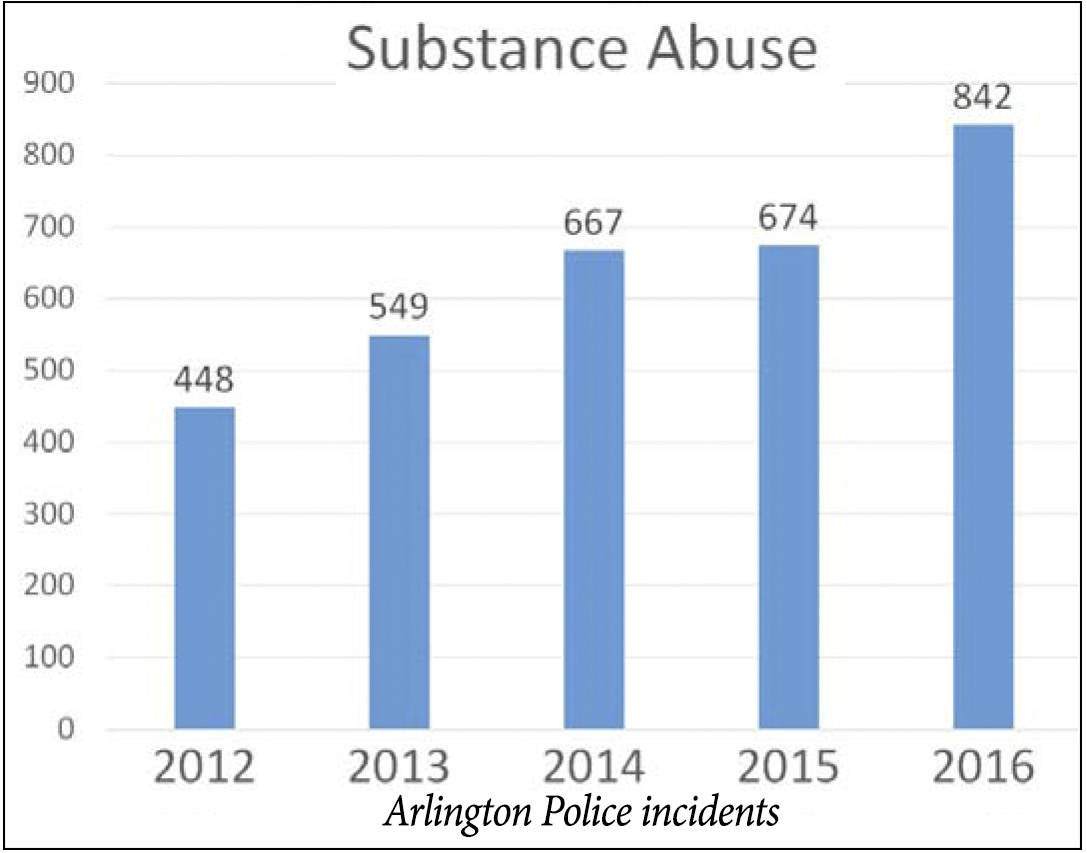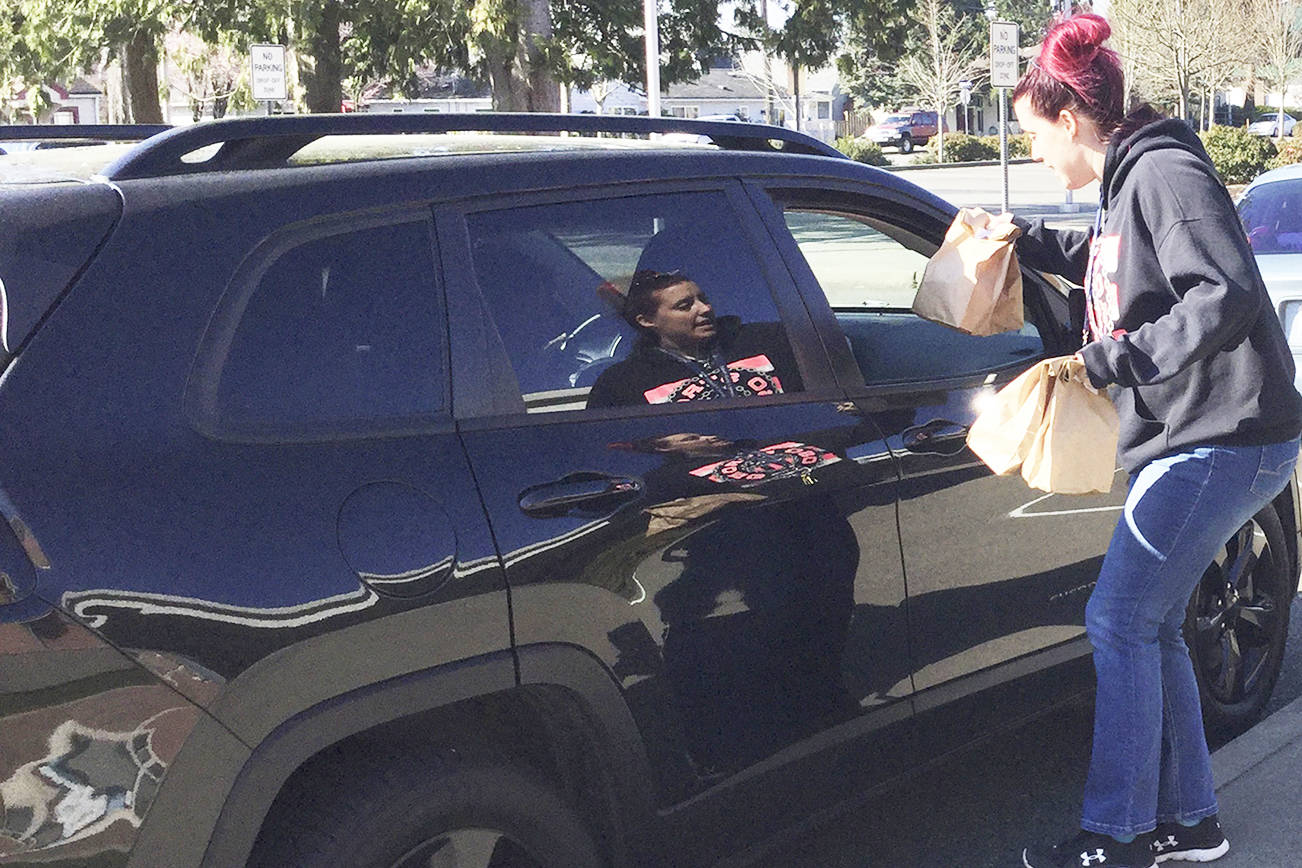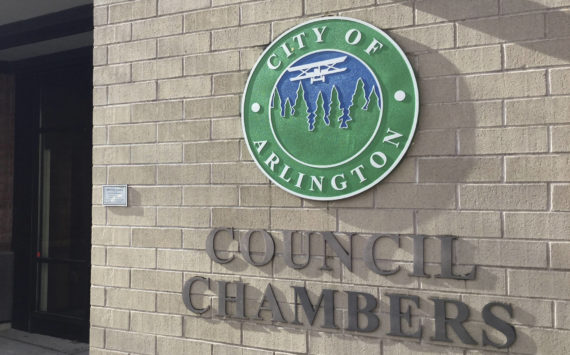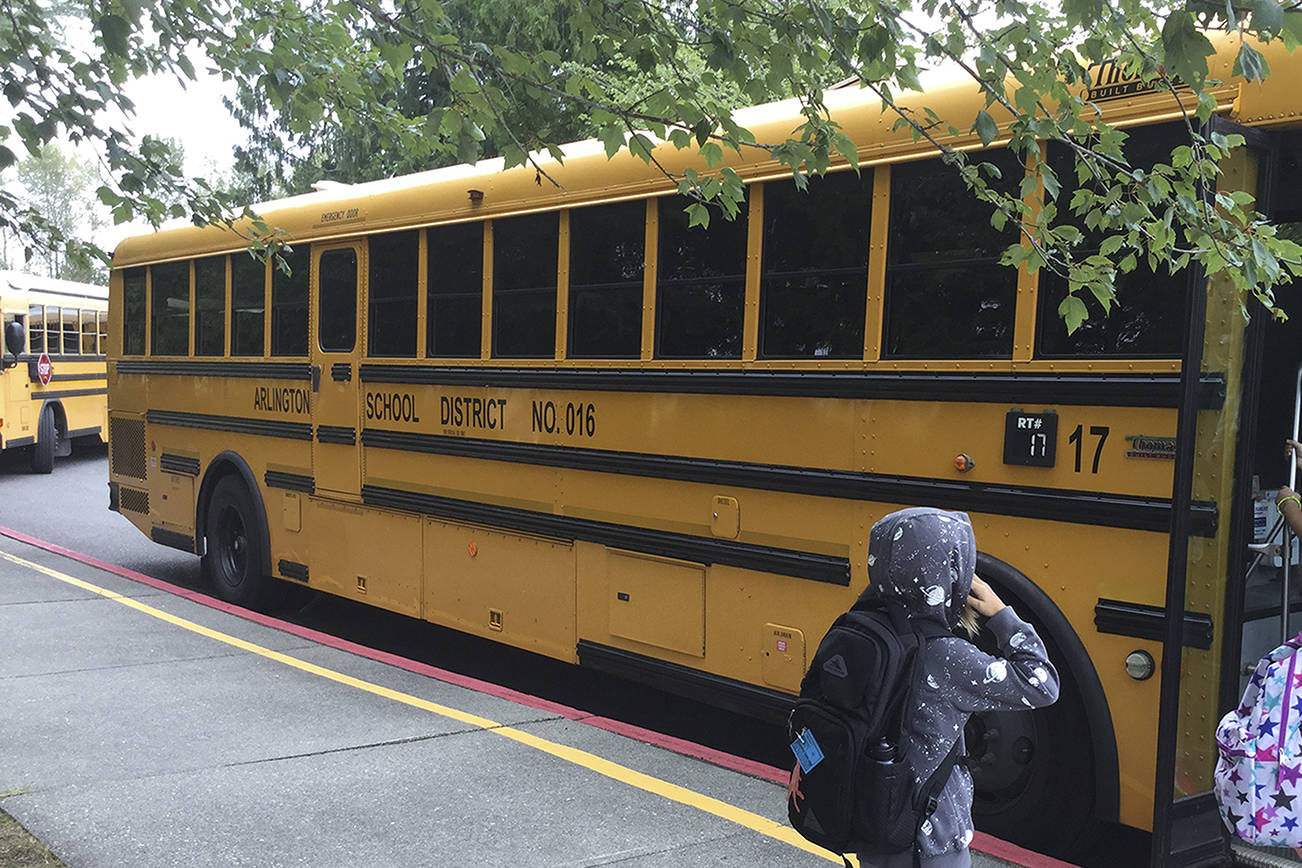ARLINGTON – The city may establish a designated anti-drug activity zone in the Smokey Point area to deter increasing drug-related criminal activity and impose tougher fines on repeat offenders.
Officially known as a “Stay Out of Designated (Drug) Area,” or SODA, the new law would define boundaries for the area that would generally mirror the business district, giving law enforcement another tool to combat drug crimes.
The new law would set the conditions under which defendants charged or convicted on drug offenses in Marysville Municipal Court can be barred for two years or more from the SODA area, and subject to contact or re-arrest if they ignore the “stay out” court order.
The City Council will discuss the matter at its Aug. 7 meeting before recessing for the month.
“The retail corridor located within the Smokey Point neighborhood community has the highest concentration of illicit drug activity,” said Police Chief Jonathan Ventura, based on citizen and business complaints and perceptions of the place becoming more unsafe, crime statistics and police observations.
The Smokey Point “stay out” zone would encompass an area from I-5 east to 43rd Avenue NE, and from Smokey Point Drive and the 17300 block south to 168th Street NE.
Other pockets of reported narcotics activity such as downtown Arlington could be designated SODA areas as well.
“Arlington has seen a steady increase in drug activity, drug-related arrests and drug-related overdoses over the last several years,” Ventura said. “Drug trafficking occurs in both public and private locations, and some areas have been more affected than others.”
From 2012-16, drug-related incidents rose from 448 to 842 calls, an 88 percent increase.
Heroin and opioid substance abuse has been a recurring theme on calls, consistent with the epidemic sweeping the nation.
Through May, Arlington police responded to 318 drug-related incidents.
“Our calls are definitely up (even more) now that that the weather’s good and school is out,” Deputy Chief Dan Cone said.
Everett and Marysville, have enabled SODA locations to provide the law and justice system more tools to address known drug areas in an effort to make their communities safer.







